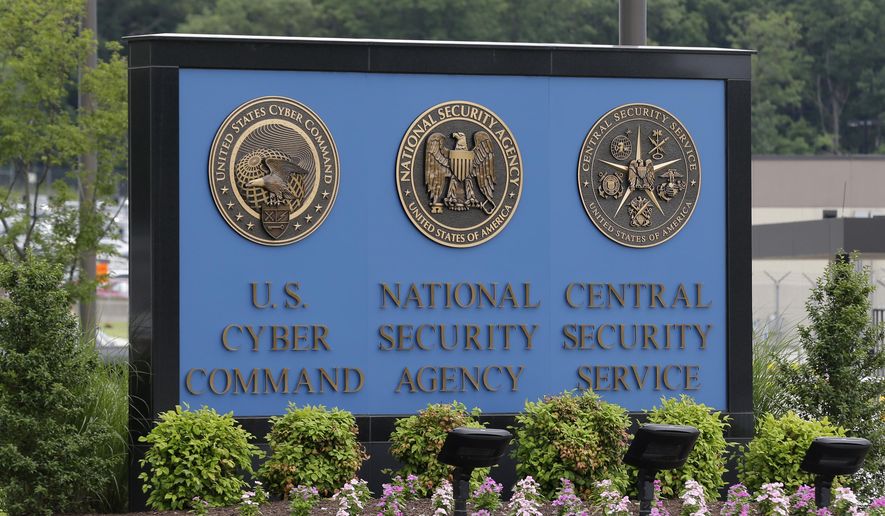The intelligence community was scheduled to stop collecting Americans’ phone metadata Sunday — but still wants three more months to continue looking through the billions of phone call records it already has, as it tries to see whether its replacement snooping program is working.
The secret Foreign Intelligence Surveillance Court is considering the National Security Agency’s request for continued access to the records, the director of national intelligence said in a statement Friday.
“Beginning Sunday, November 29, the government is prohibited from collecting telephone metadata records in bulk under Section 215, including of both U.S. and non-U.S. persons,” the Office of the Director of National Intelligence said in the statement.
That marks the end of the NSA’s phone-snooping program, revealed two years ago by former government contractor Edward Snowden.
Under the USA Freedom Act, renewed by Congress this year, the NSA can no longer collect and retain Americans’ phone metadata — the numbers, times and durations involved in calls — in bulk.
Instead of keeping the information in government databases for five years, the NSA will have to go to phone companies every time the spy agency wants data — and it must submit a narrow search so that it’s clear analysts are looking for a specific person, number or group, rather than broad bulk collection.
The intelligence service repeatedly said in its statement that bulk collection is no longer legal under the USA Patriot Act, the Foreign Intelligence Surveillance Act or the use of national security letters — but some privacy advocates have feared that the NSA will find another authority to keep collecting and analyzing the information.
Under the original program, the NSA gathered the metadata and stored it for five years and queried it when analysts had reason to suspect that a number could be linked to terrorism.
They were allowed to go three “hops,” meaning they could see whom the target number communicated with, then see whom all of those numbers communicated with, and then again whom that second set of numbers communicated with.
President Obama, who said once the program was revealed that he wanted to get rid of it, limited it to just two hops. Unlike many of his other executive initiatives, he said he could not end the program without Congress’ help. Some privacy advocates disputed that.
Several civil liberties reviews found that the program was likely unconstitutional and had no track record of meaningful successes in foiling terrorist plots.
Still, the program’s end is not without controversy.
Sen. Tom Cotton, Arkansas Republican, has introduced legislation to keep the NSA program running until the agency can certify that leaving the information in private phone companies’ hands can be as effective as the current program.
The issue is also popping up in Republican presidential campaigns. Sen. Marco Rubio backed the program as a key tool in the war on terrorism and used the issue to attack two rivals, Sens. Ted Cruz and Rand Paul, both of whom opposed the NSA snooping.
The end of the program also raises questions about what to do with the five years of data already stored by the NSA. The agency says it will expunge it — but ironically, one of privacy advocates who is fighting to shut down the program has demanded that the data be saved.
Larry Klayman, who has battled the NSA program for two years, said in court this year that he is suing for damages, so the NSA must keep the data to help him prove his case.
• Stephen Dinan can be reached at sdinan@washingtontimes.com.




Please read our comment policy before commenting.